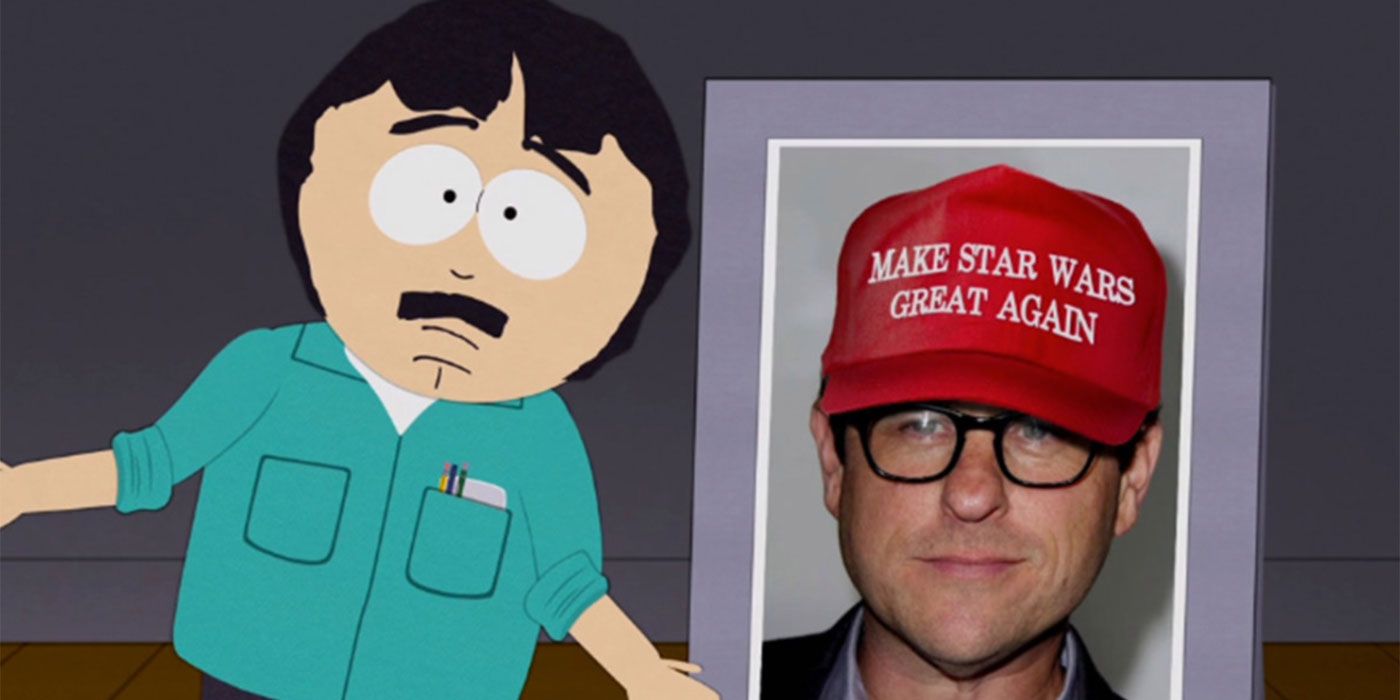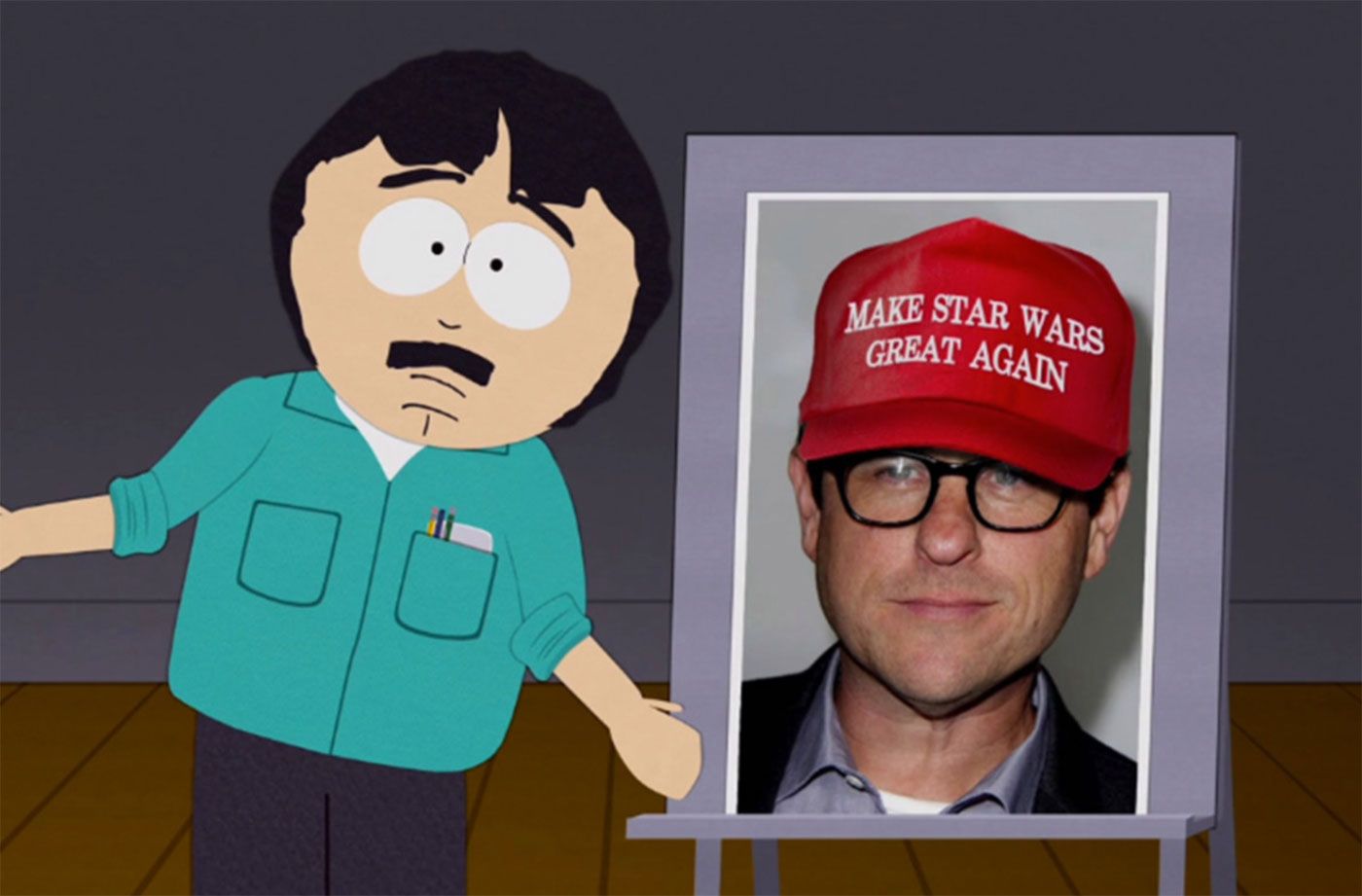Viewers have been going down to South Park to have themselves a time since 1996. From the get-go, the misadventure of 4 Colorado boys (Stan, Kyle, Kenny and Cartman) was drastically less conventional than its premise would have you believe; the pilot episode has Cartman being anally probed by visiting aliens, for example. The show quickly distinguished itself from other kid-unfriendly cartoons by not just being entirely more irreverent, but by lampooning everyone and everything under the sun.
South Park just finished its 20th season, which, frankly, garnered a mixed reception from fans and critics. While the show has dabbled increasingly in continuity in more recent years (a far cry from Kenny’s episodic deaths in the early seasons), this season made major jump. It went full serial, focusing on virtually the same storylines with little distinction between episodes other than (slow) progresssion. And as we saw in the finale, it all eventually went ... somewhere, I guess?
Still, the experiment managed to accomplish what “South Park” has always done best: ridicule our ridiculous society.
Trolling
Perhaps the biggest target of the season rested on not just stereotypical internet trolls, but the cultural psychology of trolling.
How did Donald Trump (or, in the “South Park” universe, former teacher, current immigrant-f*cking Mr. Garrison) become president? Why do people go from zero to screaming vitriolic obscenities in under one second?
“South Park” brilliantly addressed the troll in all of us. Kyle, South Park’s lone voice of moral clarity, eventually discovers that his father Gerald is the rampant troll Skankunt that’s been terrorizing the world. After inspiring other trolls to cyberbully an Olympic Breast Cancer survivor from Denmark to the point of suicide, the Danish Prime Minister creates Troll Trace -- an app that can let you look up anyone’s Internet history.
Chaos breaks out, causing trolls to literally be burned in the streets. To top it all off, the creator of Troll Trace ends up Rick Rolling everyone, revealing that he didn’t want justice; he just wanted to watch the world burn.
Gerald confronts the prime minster, pointing out that what he’s done isn’t funny or satire. “Maybe this is like the new, post-funny era of satire!” the PM responds.
There’s another moment in the finale where scientists explain the phenomenon of trolling to Garrison. Called “Trevor’s Axiom”, the scientists explain that trolling isn’t about bullying one person, but eliciting an infinite chain reaction from people in response to the bullying. “Huh, that sorta sounds like how I got elected,” Garrison says in full Trump stank face.
“South Park” understood that trolls aren’t limited to a few bad apples, but are rather the consequence of everyone having the freedom to say what they want instantly, with complete anonymity. Maybe we’ve always been this bad. Maybe we just echo-chambered our way to this point.
Those few bad apples weren’t immune from blame. While showing a modicum of sympathy for Dildo Schwaggins (a fellow troll) and his life of being bullied, Gerald is never painted as anything other than a self-deluded asshole. When he criticizes the Danish PM for not being funny enough, shots are fired. “Wait, if you do some big outrageous thing with a positive attitude you’re a satirist, but if you’re cynical about it, you’re a nihilist?” The Dane asks. “That’s fucking ridiculous!”
Nostalgia
“South Park” season 20’s most comical advent came in the form of Member Berries. For the uninitiated, Member Berries are like delightful little grapes who perpetually reminisce. (“'Member the '80s?” “'Member Chewbaca?” “'Member when marriage was just between a man and a woman?”) This would be clever enough, but “South Park” took it a step further. The Member Berries were cast as not just as retro pop culture fanboys, but as something far more insidious.
It raises interesting questions of our culture’s obsession with the past: Is there a fine line between remembering and refusing to move forward?
Not all reboots are created equal. “Hannibal” and “Fargo” are two of the best shows we’ve had this century, so not all re-imaginings fall into the Member Berry trap. It’s more the type of nostalgia porn that panders to your memory of their predecessors, like, say, a certain 2015 mega- blockbuster set long ago, in a galaxy far, far away.
As ubiquitous as nostalgia’s become, it’s nothing new. There’s always been talk of “The good ol’ days.” The Great (and Old) American Novel “The Great Gatsby” is all about clinging hopelessly to what we ‘member, rather than what actually is.
But, like trolling, perhaps the Internet has compounded this quality. As Garrison is questioning his impending presidency, he’s sprayed by Member Berry Juice (by his VP running mate Caitlin Jenner... just go with it) causing him to complete his transformation into Donald Trump.
We last see the Member Berries taking the White House, standing at the desk of the newly elected Trump figure. We don’t find out what happens next, which brings us to….
Serialization
The season 20 finale, titled “The End of Serialization as We Know It,” had a lot of expectations to placate. None of the storylines had a clear conclusion on the horizon. The entire season, while funny, barely moved forward, and was often repetitive.
One such arc set up from the beginning of the season was Gerald’s sociopathic trolling. Even after one of his targets kills herself due to the horrific bullying, Gerald insists that he’s done nothing wrong, that he was only in it for the “lulz.”
Fans probably hoped for comeuppance, or at least some sort of redemption, and despite all his rationalization, Gerald finally seems to finally see the light. “All we’ve been doing is making excuses for being horrible people,” he admits to the Danish Troll. He then pushes him over a ledge, proclaiming, “There's a huge difference between us -- fuck you, I’m fucking funny!” So… lesson not exactly learned.
The lack of resolution seemed to be a meta-commentary on both serialization, and our world itself. Our heroes in our favorite shows will never have true resolution until the final episode, and in real life, there are no more immediate answers, not in a world where Garrisons can troll their way to the presidency.
The serialization did allow for more in-depth character focus, namely Kyle and Cartman. Kyle never stopped doing the right thing, even if it meant being punished for his father’s mistakes. And Cartman proved that even after turning over a new leaf and finding happiness with his very smart, very funny (?) girlfriend Heidi, he’d find a way to literally blow it all up through sheer douchebaggery.
This will probably be remembered as that season of South Park where nothing really happened (“’Member the Old South Park?” “Oh, yeaaah, I 'member!”) And I can’t really argue against that. The arcs ultimately went nowhere, or perhaps just to an ambiguous, head-scratching “somewhere." While some characters were given more to do than ever before, most of them seemed to disappear.
Maybe changing the tables this late in the game was doomed to not stick the landing, but as this season demonstrated, it’s better to experiment and not succeed rather than rest on your laurels, like those Member Berry-eating Romans.




